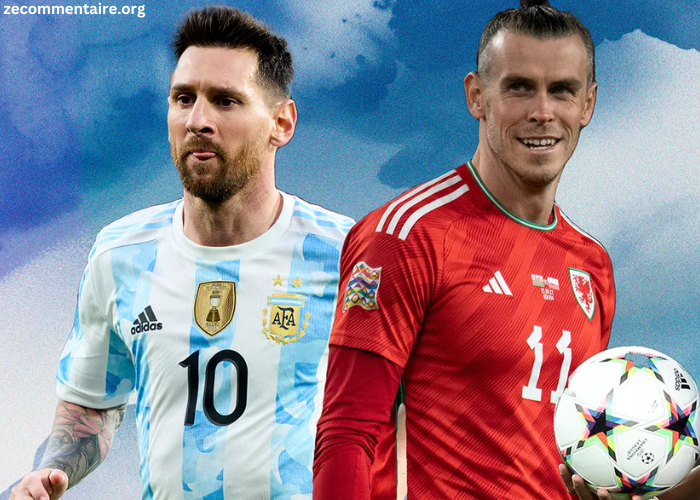The FIFA World Cup 2022, held in Qatar, stands as a landmark event in the annals of international football. This tournament was not just another edition of the world’s premier football competition; it marked several significant milestones and captured the imagination of millions globally. From its unique scheduling to its historic moments, the 2022 World Cup offered an array of narratives that enriched the sport’s storied history. This comprehensive overview delves into the key aspects of the tournament, including its preparation, notable matches, standout players, and the overall impact on football and the world at large.
The Road to Qatar: Preparation and Anticipation
The preparation for the FIFA World Cup 2022 began years before the tournament, with Qatar being awarded the hosting rights in 2010. This decision was significant not only because it was the first time the World Cup was to be held in the Middle East but also due to the unique challenges and opportunities it presented. The compact nature of Qatar allowed for a unique World Cup experience, with all the stadiums located within a short distance of each other. This geographical advantage promised an unprecedented level of convenience for fans and teams alike.
Qatar embarked on an ambitious plan to build state-of-the-art stadiums and infrastructure to meet the demands of hosting the world’s largest football event. The tournament featured eight venues, each showcasing modern architecture and advanced technology. The stadiums were equipped with cooling systems to counteract the desert heat, ensuring a comfortable environment for players and spectators.
The World Cup’s scheduling in November and December was another notable departure from tradition. Traditionally held in the summer, this timing adjustment was made to avoid the extreme heat of the Qatari summer. This decision presented both opportunities and challenges, including the impact on domestic football leagues and the adjustment for players accustomed to summer World Cups.
A Tournament of Firsts
The FIFA World Cup 2022 was notable for several historic firsts. Qatar’s role as the host nation was a significant milestone, highlighting the region’s growing influence in global sports. This was the first time the World Cup was held in the Arab world, bringing a new dimension to the tournament’s cultural and geographical diversity.
The 2022 World Cup also featured the first use of advanced technology such as semi-automated offside technology (SAOT) and enhanced VAR (Video Assistant Referee) systems. SAOT was introduced to improve the accuracy and speed of offside decisions, a crucial development given the often razor-thin margins in high-stakes matches. This technology aimed to reduce controversy and ensure fair play.
Moreover, the tournament saw the debut of several new teams in the knockout stages, demonstrating the increasing competitiveness of global football. Countries like Morocco made history by reaching the semi-finals, showcasing the expanding talent pool and the rising standard of football across different regions.
Memorable Matches and Key Moments
The FIFA World Cup 2022 was filled with unforgettable moments that captivated fans around the world. The opening match, where Qatar faced Ecuador, set the tone for an exciting tournament. Although Qatar struggled in their debut match, the opening ceremony and the atmosphere in the stadium highlighted the enthusiasm and passion surrounding the event.
One of the standout fixtures was the group stage encounter between Argentina and Saudi Arabia. In a stunning upset, Saudi Arabia defeated Argentina 2-1, shaking up the tournament and illustrating the unpredictable nature of World Cup football. This match was a testament to the thrill of the World Cup, where underdog teams can challenge traditional football powerhouses.
The knockout stages were equally dramatic, with numerous matches showcasing exceptional skill, strategic depth, and emotional intensity. The quarter-final clash between Brazil and Croatia was a particularly memorable encounter. Croatia’s victory in a penalty shootout demonstrated their resilience and tactical prowess, while Brazil’s elimination marked a poignant moment for one of football’s most storied teams.
The final, held at the Lusail Iconic Stadium, was a dramatic conclusion to the tournament. The match between France and Argentina was a showcase of top-tier football, featuring exceptional performances from both teams. The game ended in a thrilling penalty shootout after a 3-3 draw, with Argentina emerging victorious. This final was not only a testament to the high level of competition but also a fitting climax to a tournament filled with memorable moments.
Star Performers and Emerging Talents
The FIFA World Cup 2022 saw a host of standout players who left an indelible mark on the tournament. Lionel Messi, playing for Argentina, delivered a series of remarkable performances that solidified his status as one of the greatest footballers of all time. His leadership, skill, and crucial goals were instrumental in guiding Argentina to victory, earning him the Golden Ball award as the tournament’s best player.
Kylian Mbappé of France was another standout performer, scoring a hat-trick in the final and showcasing his incredible talent and potential. His performance earned him the Golden Boot as the tournament’s top scorer and highlighted his role as one of the game’s brightest stars.
Emerging talents also made their mark during the tournament. Players like Jude Bellingham of England and Pedri of Spain demonstrated the depth of young talent in world football. Their performances hinted at a promising future for their respective teams and added to the excitement of the tournament.
The Impact of the FIFA World Cup 2022
The FIFA World Cup 2022 had a profound impact beyond the football pitch. It showcased the capabilities of Qatar as a host nation and highlighted the country’s commitment to advancing sports and culture on the global stage. The tournament’s successful execution demonstrated the potential for future World Cup events in new and diverse locations.
Culturally, the 2022 World Cup served as a platform for showcasing Arab culture and hospitality. The event highlighted Qatar’s rich heritage and traditions, contributing to a greater appreciation and understanding of the region’s culture. The tournament’s cultural exchange also fostered a sense of global unity and camaraderie among fans from different parts of the world.
Economically, the World Cup had significant implications for Qatar. The investment in infrastructure, tourism, and international exposure provided a boost to the country’s economy and global profile. The event also set a precedent for future major sporting events in the region, paving the way for increased investment and development in sports and entertainment.
Challenges and Controversies
While the FIFA World Cup 2022 was largely celebrated, it was not without its challenges and controversies. The decision to award the tournament to Qatar faced scrutiny regarding human rights issues and labor practices. Reports of migrant worker conditions and environmental concerns raised questions about the ethical implications of hosting the World Cup in the region.
Additionally, the scheduling of the tournament in November and December had a significant impact on domestic football leagues around the world. The interruption of the regular football season posed challenges for clubs and players, highlighting the complexities of hosting a global event outside the traditional summer window.
The Legacy of the FIFA World Cup 2022
As the dust settled from the FIFA World Cup 2022, the tournament’s legacy began to take shape. The event’s success in terms of organization, cultural impact, and footballing excellence set a high standard for future World Cups. The innovations in technology, the memorable matches, and the celebration of global football all contributed to a lasting impression.
The tournament’s legacy extends to the continued growth and development of football around the world. The exposure and inspiration provided by the World Cup contribute to the sport’s evolution and the emergence of new talent. The FIFA World Cup 2022 will be remembered as a milestone in football history, reflecting the passion, skill, and global appeal of the beautiful game.
Conclusion
The FIFA World Cup 2022 in Qatar was a landmark event that captured the essence of global football. From its innovative preparations and historic firsts to its memorable matches and standout performances, the tournament offered a wealth of experiences and stories. The impact of the World Cup extended beyond the pitch, influencing cultural perceptions, economic development, and the future of football.
As the world reflects on the FIFA World Cup 2022, it is clear that the tournament has left an indelible mark on the sport and its global audience. The event showcased the beauty of football and its power to unite people from diverse backgrounds, celebrating the sport’s rich history and its bright future.






